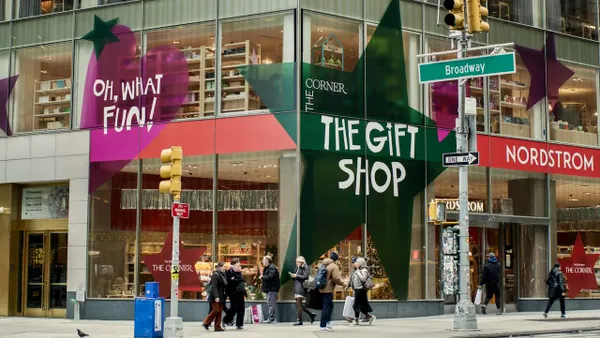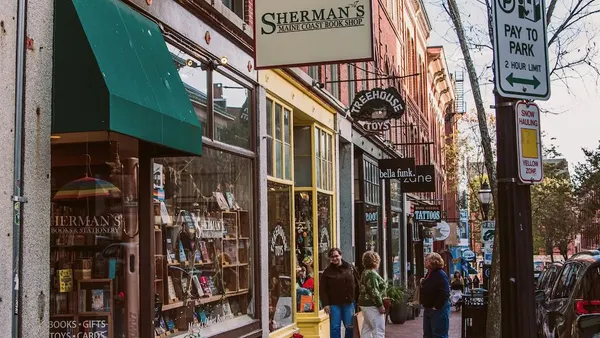Dive Brief:
-
According to a new report from LateShipment.com, average package delay rates during this year's holiday season could range from 14% to 18%. That makes the package delay rate between 1.5 to 2 times worse than any past holiday season. Highly populated areas like New York, Los Angeles and Chicago could face delays between 25% and 30%, the report estimates.
-
During the COVID-19 pandemic period between April 1 and Oct. 31, UPS experienced the most significant package delays in New York (14.9%), Los Angeles (11.6%) and Chicago (7%). In the same timeframe, FedEx experienced the most package delays in Chicago (11.6%), New York (9.4%) and Houston (8.8%), according to the report.
-
Between April 1 and Oct. 31, UPS packages across the sports (12.3%), food (11.9%) and electronics (11%) retail categories faced the greatest delays. During the same period for FedEx, packages within the jewelry (14.4%), sports (13%) and apparel (11.3%) retail categories faced the highest rates of delays, the report said.
Dive Insight:
The LateShipment.com report noted that the lower usage of airline networks could mean holiday packages transported through Express services will be more likely to reach their destinations on time than packages shipped via Ground services.
However, now that the COVID-19 pandemic has driven greater online shopping demand, both UPS and FedEx's services are likely to experience shipping delays regardless of the delivery options retailers and consumers pick, according to the report. "The overall number of holiday packages that will be sent out will exceed the handling capacity of shipping carriers, thereby missing promised delivery windows," the report said.
Though the report predicts FedEx to outperform UPS from an on-time delivery standpoint, both carriers, as well as USPS, have been preparing for the surge in packages during this year's holiday season. In August, FedEx announced surcharges beginning in October. That same month, USPS also said it would raise prices on commercial packages between mid-October until after Christmas, while UPS said it would up peak surcharges for the holiday season to temper the growth of e-commerce volume due to COVID-19. Beyond raising rates on packages, The Wall Street Journal reported last week that UPS imposed shipping restrictions on some large retailers including Nike, Gap, Macy's and other major retailers.
Per Adobe's research, consumers spent 15.1% more during this year's Cyber Monday sales events compared to last year. And with that onslaught of online shopping, retailers are now preparing for a wave of returns.














